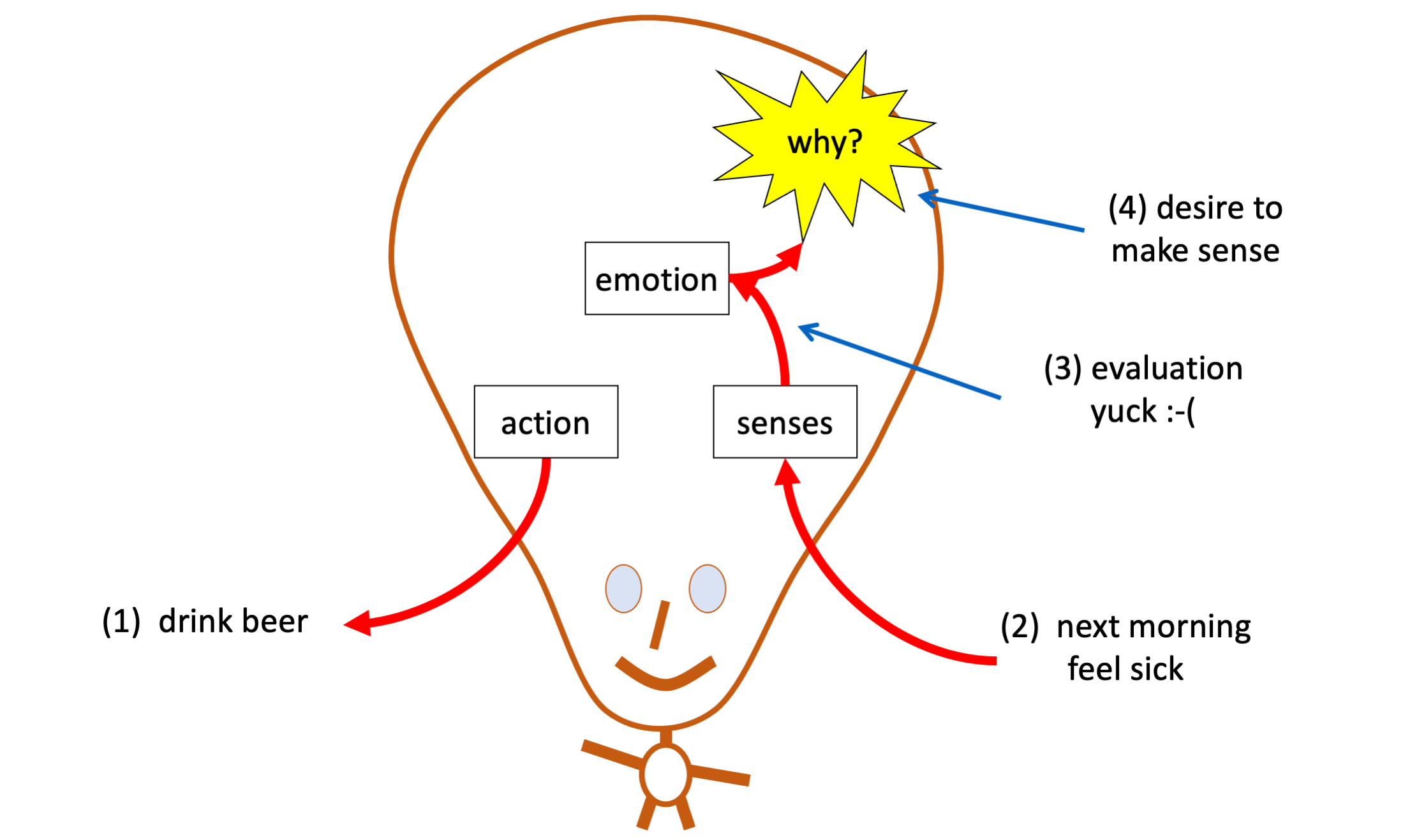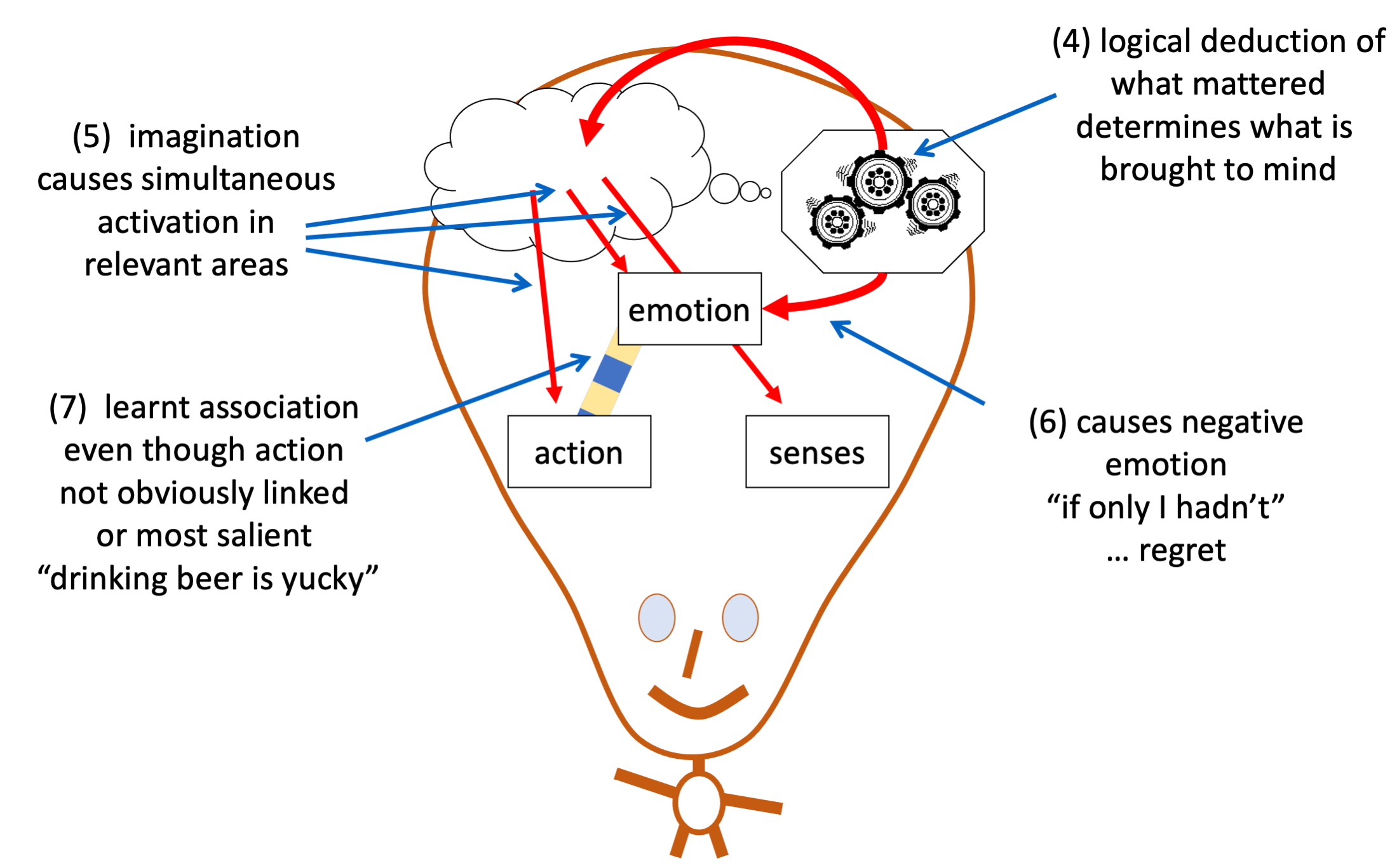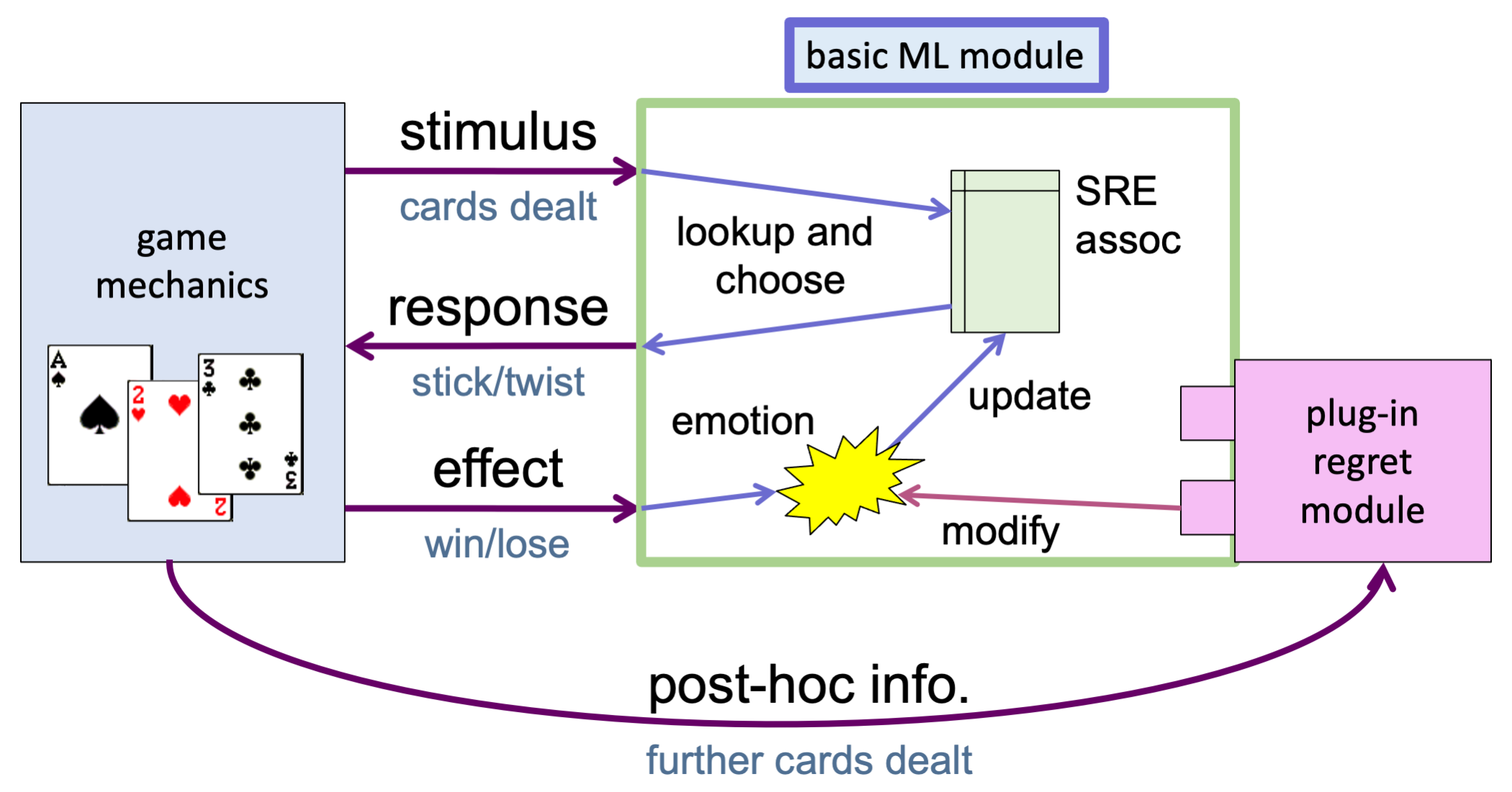Human regret is the emotion we feel when (typically) something goes wrong and we think of ways in which we could have acted differently. It can be a crippling emption, but it is actually a finely tuned learning mechanism that focuses our attention on the small changes in behaviour that would make a big difference in outcomes. As well as this more typical negative regret, there is also a variation, positive regret when things turned out well, but could have been even better. Regret involves complex counter-factual reasoning as well as lower emotion and stimuus–response learning.
Regret can used in AI as a success metric during machine learning: how well does the system behave compared with the best possible outcome. Models of human regret can also be used both to help understand human cognition, and to enhance machine learning.
Used in Chap. 5: page 70; Chap. 6: page 85; Chap. 16: page 242; Chap. 22: pages 343, 350, 351, 352, 353
Used in glossary entries: emotion, machine learning, positive regret
Links:
 alandix.com: article: Regret from cognition to code
alandix.com: article: Regret from cognition to code

Cognitive understanding of regret – initial feelings

Cognitive understanding of regret – regret kicks in

Computational model of regret from Regret from cognition to code